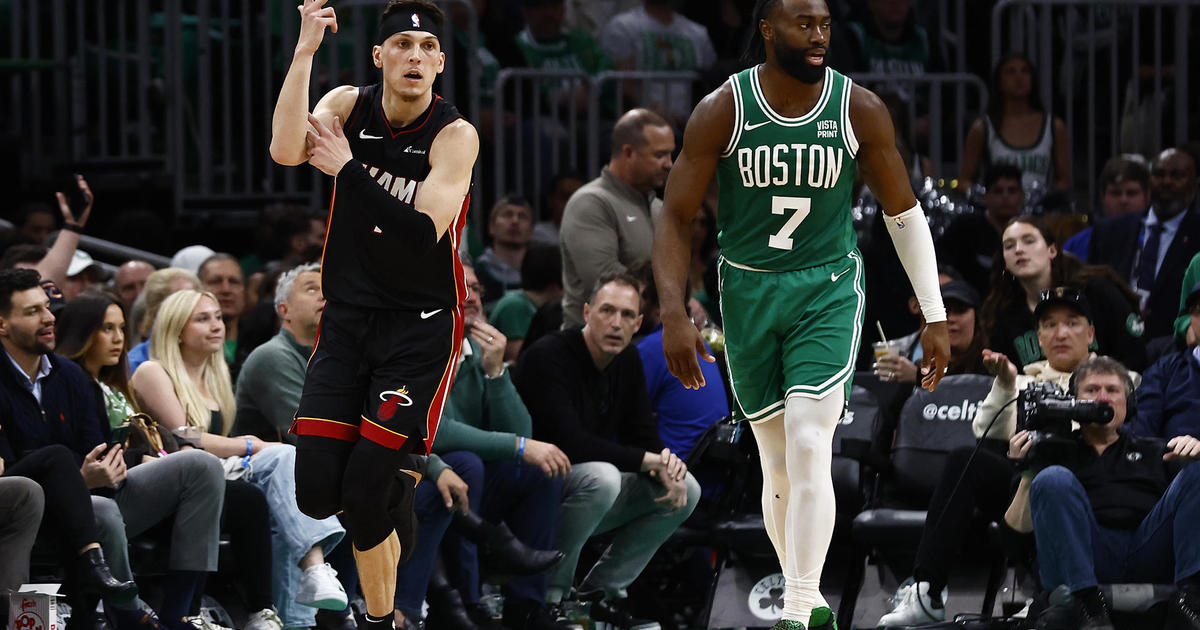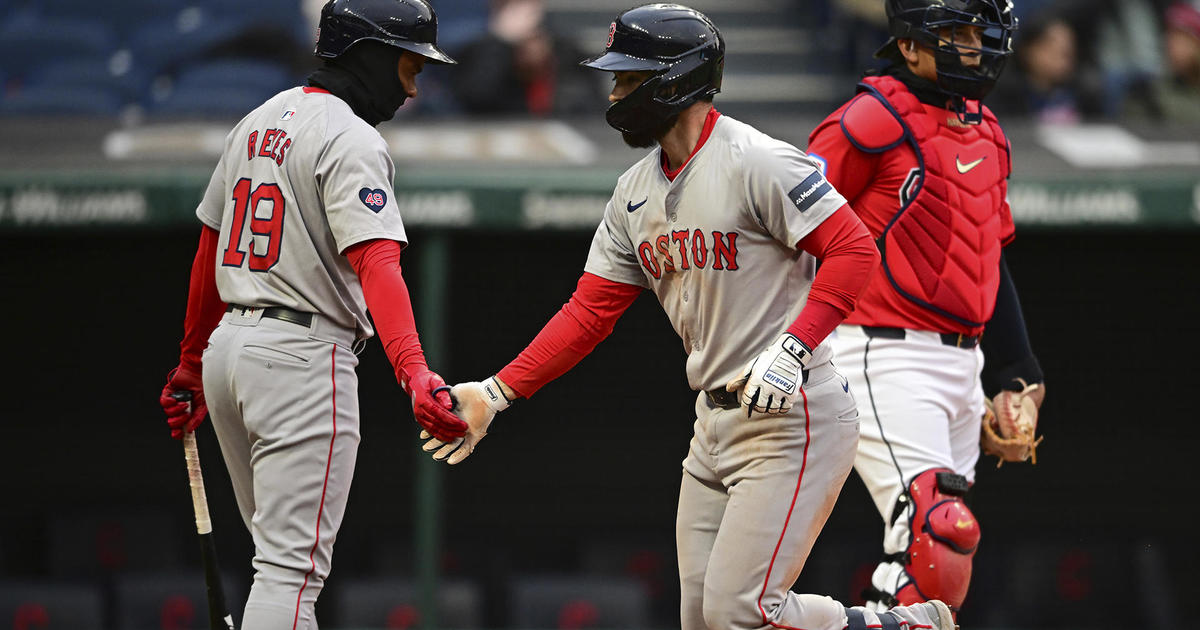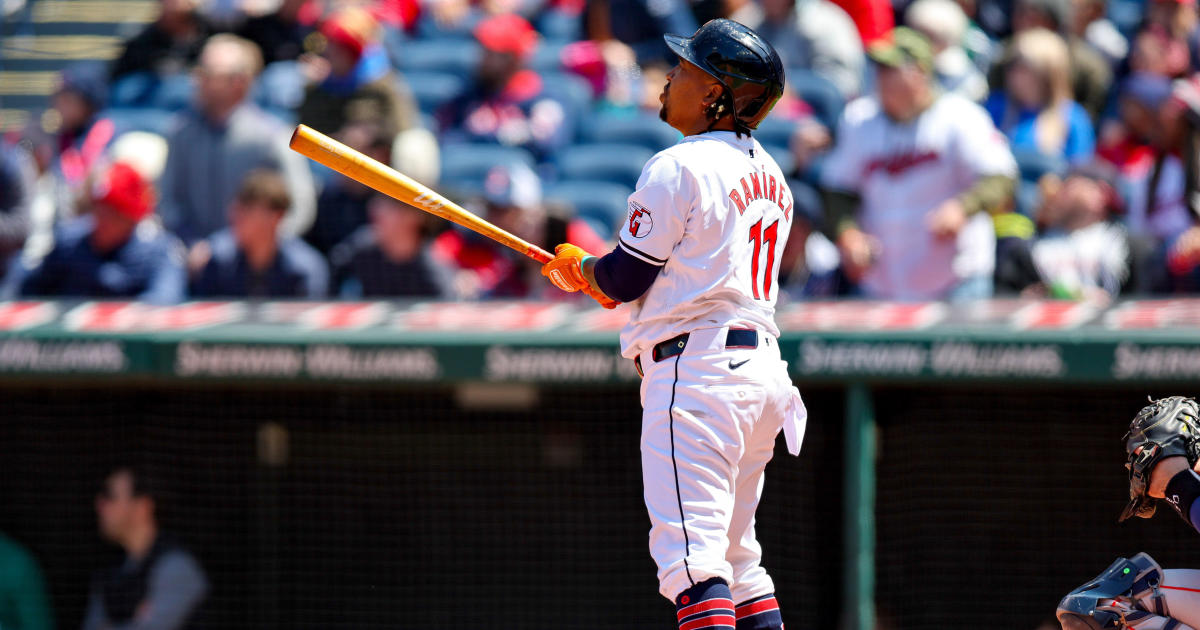Hurley: The Dumbest Part About MLB's One-Game Playoff Will Hurt Both Red Sox And Yankees
By Michael Hurley, CBS Boston
BOSTON (CBS) -- At this point, in year number seven of screaming into the ether about the insanely iniquitous process known as MLB's one-game wild card playoff, I've accepted the fact that many people like it and will always like it. Sure, it may bother them when their favorite team gets a raw deal. But that happens rarely enough that it doesn't seem to be a problem. Fine. My white flag, she is a-waving. People love their mandatory one-game playoff. Manufactured drama. Scheduled fun. Yippee!
Whatever.
But in the interest of looking both at the current standings and ahead to the potential playoff picture, it's a good time to remind both Boston and New York that a bunch of baloney is on the horizon. And it is -- unsurprisingly -- rooted in the silly beloved one-game playoff.
You see, previously, the esteemed baseball writers who pointed out that either the Red Sox or the Yankees would be hurt by the current system were being a bit too simplistic in their approach. That's because in actuality, it is both teams that are a near-certainty to get stiffed by the current playoff format.
The way it will work will be like this: The runner-up in the AL East will be forced to play, in all likelihood, the Seattle Mariners. If we project the current standings out to 162 games, here's how the playoff picture will look:
AL EAST
Red Sox: 110-52
Yankees: 108-54*AL CENTRAL
Indians: 90-72AL WEST
Astros: 107-55
Mariners: 101-61
Now, look, outside of the miserable AL Central, that is an impressive bunch of records. Four 100-win teams in one league is pretty exceptional, just as long as you discount the fact that half of the league is under .500. But any way you slice it, a very worthy team is going to be put into a situation that looks to be unfair. Generally, if you win 100-plus games, you don't have to put your season on the line with a one-game playoff. But those are the breaks this year. Cleveland? Free pass to the ALDS. Two teams with 100-plus wins? Enjoy your one-game playoff. It'll make for some great TV! Anyways.
It's not necessarily the one-game playoff that will rear its ugly head this year. Instead it's the postseason format, which dictates that the league's best team gets to face the wild-card winner in the divisional series. The idea here is that the two wild-card teams are theoretically the weakest of the playoff bunch, so the No. 1 seed gets to face the weakest opponent. Huzzah, right?
Well, no. If these records hold, then it will be the 108-win Yankees taking on the Mariners in the one-game playoff. And if the Yankees win, they will then be facing the 110-win Red Sox in a best-of-five American League Division Series.
Meanwhile, the Astros -- who in this scenario won fewer games than both the Red Sox and the Yankees -- will be given the gift of the barely-better-than-mediocre Indians in the ALDS.
What in the wide world of sports is that all about?
The best team in the league should host the worst qualified playoff team in the first round of the postseason. That is as simple as simple gets, and it's what the concept was when that aspect of the current format was decided upon. But clearly, that current format can be a total failure in a year like this one. You could say that this is splitting hairs, that the difference between a 108-win team and a 107-win team is minuscule at best. You'd be right, but only to an extent; why keep records at all if they're not going to matter when the season ends? There should be a benefit to winning more games than another team. Instead, there's a penalty.
The way the format is currently constituted, the best team in the American League stands to get punished for winning 110 games. And it's not as if either the Red Sox or Yankees can simply let off the gas pedal, rest a handful of key players in September, and cruise into the playoffs with an easier seeding by finishing second in the division. The threat and possibility of the one-game playoff ensures that both teams will need to do their best to win the division, because no team -- no matter how great -- is immune from the unpredictable nature of a one-game playoff.
The Astros then would need only to win their division in order to ensure that they'd not only miss out on the one-game playoff but also land the worst available playoff team for the best-of-five division series. That would leave the two best teams in the American League -- the Red Sox and Yankees, provided they win the one-game playoff -- to battle it out in a five-game series.
This doesn't make sense.
Obviously, it's only early July, and a lot can change. But the point is, if the postseason were to begin right now, the format would greatly punish the best two teams in the American League. If the standings hold, that will be the case.
Fixing these things would seemingly be fairly simple. The best team plays the worst team. The other two teams play each other. That's as fair as it can get. But nobody seems all that interested in fixing it.
Perhaps that's just part of baseball's "charm" and history. Back before 1969, of course, only two teams made the "postseason," such as it was. The top team in the AL played the top team in the NL for the World Series. It didn't matter if the second-best team in the NL was better than any team in the AL; the members of that runner-up went home early to work their winter jobs. "Fairness" wasn't really in the baseball lexicon back then.
But people did things in a backward way quite often in the old days. We are, theoretically, more advanced now. We can do math -- on our phones! We know some scientific things that maybe we didn't know in the 1930s. We can drive way faster on the highway. Computers? They're pretty cool. It is a new era.
So perhaps it's time to breathe some common sense into baseball's playoff system. The inclusion of two major markets like Boston and New York in a potential goof of this magnitude might just be enough to spur some changes.
You can email Michael Hurley or find him on Twitter @michaelFhurley.



